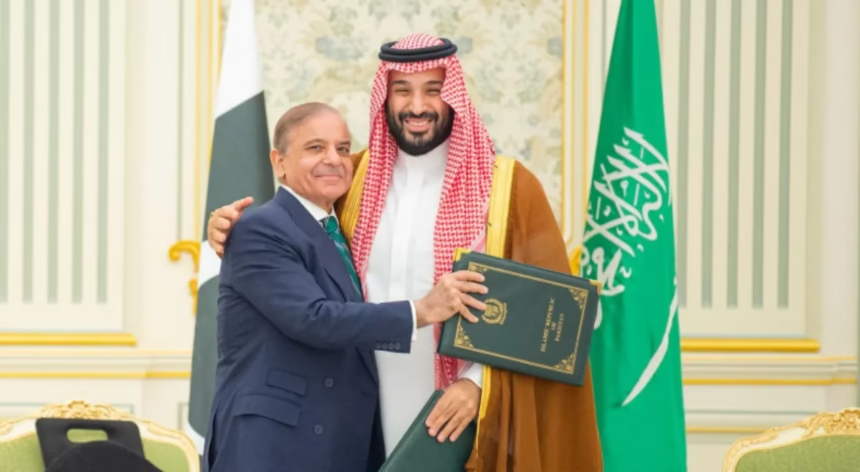Riyadh: Saudi Arabia and Pakistan have signed a landmark defence pact that declares “an attack on one as an attack on both”, formalising decades of close security cooperation between the two nations.
The agreement, concluded during Pakistan Prime Minister Shehbaz Sharif visit to Riyadh, comes at a time of heightened regional tensions following Israel’s recent airstrike in Doha.
For Saudi Arabia, the deal reflects growing unease among Gulf states about relying solely on the United States as their security guarantor.
The agreement institutionalises Riyadh long-standing military partnership with Pakistan, which possesses nuclear weapons and one of the world’s largest standing armies.
A senior Saudi official stressed that the pact was “not aimed at any specific country”, but was intended to “strengthen joint deterrence against any aggression.”
India reacted cautiously to the announcement.
Ministry of External Affairs said: “We will study the implications of this development for our national security as well as for regional and global stability. The Government remains committed to protecting India’s national interests and ensuring comprehensive national security in all domains.”
Security experts in New Delhi noted that while the agreement formalises an existing relationship, Pakistan may view it as added political backing. Some described the development as resembling an “Islamic NATO,” though officials in Riyadh dismissed the idea.
Also Read | Saudi Arabia launches HUMAIN Chat, first Arabic conversational AI app
The deal also raises questions about whether Pakistan could extend a nuclear security guarantee to Saudi Arabia. When asked, a Saudi official responded: “This is a comprehensive defensive agreement that encompasses all military means.”
Pakistan’s state broadcaster aired footage of Prime Minister Sharif embracing Saudi Crown Prince Mohammed bin Salman after signing the agreement.
Pakistan’s Army Chief, Field Marshal Asim Munir, also attended the ceremony, underscoring the military dimension of the pact.
Observers say the agreement marks a significant deepening of ties between the two countries, both bound by shared religious, strategic, and security interests, at a time when the region is being reshaped by the war in Gaza and shifting global alliances.



